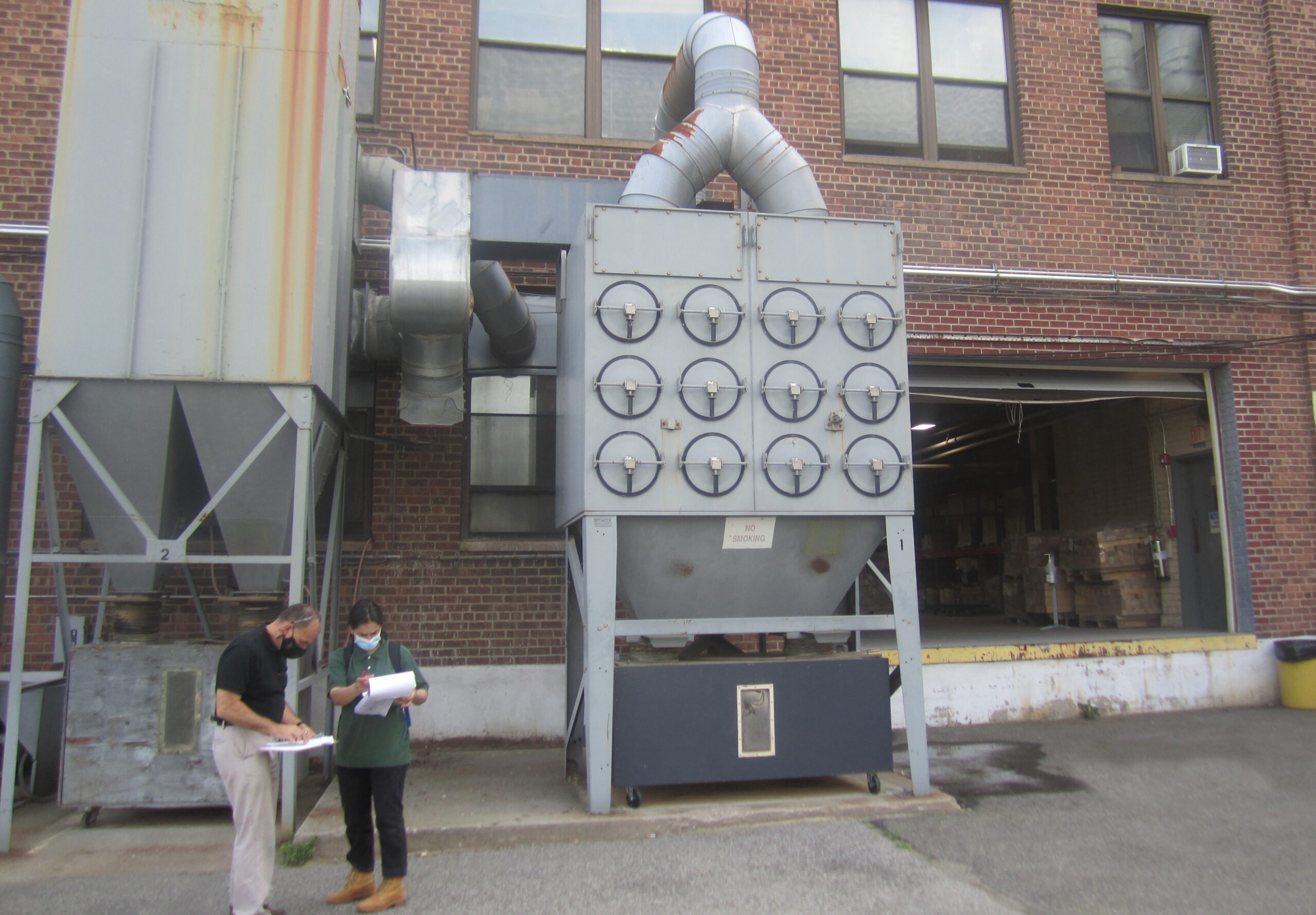Your Guide to Spray Booths, Part One: Are Your Employees and the Public Protected?
How we benefit from air quality regulations
In 2016, New York City adopted the Air Pollution Control Code (NYC Administrative Code, Title 24, Chapter 1) which is enforced by the NYC Department of Environmental Protection (NYCDEP or DEP). The Air Code was written and intended to “preserve, protect and improve the air quality of the City so as to promote health, safety and welfare, prevent injury to human, plant and animal life and property…”. That is just a snippet from a very long, involved piece of legislation.
Many people might assume that they are not affected by the content of the Air Code, but that is not the case. To describe the thinking behind the Air Code in layman’s terms, the City Council wanted to take action to ensure that the air in NYC was safe for everyone to breathe, no matter what neighborhood they live in or what their economic circumstances are.
For years, NYC grappled with outrageous numbers of asthma sufferers, most notably, children and the elderly. The terrible air did not just cause asthma though. The fine particulates that were in the air in excessive amounts could also cause heart disease and a myriad of other health conditions. These ailments caused many New Yorkers to visit emergency rooms or doctors and took a heavy toll on NYC’s health system. It was widely understood that the City had to take action to remedy the situation.
That awareness led to the development of the NYC Air Pollution Control Code. This was just one of several steps that City lawmakers took to address the problem of air pollution as the correlation between asthma and poor air quality was not lost on residents or elected officials. One could look around when outside and easily identify the culprits: construction vehicles, heavy traffic, and power plants, to name a few, or any activities that generate significant amounts of smoke.
It is worth noting that the steps taken to improve air quality are part of the City’s initiative to have the cleanest air quality of any big city in the country by 2030. This lofty goal was detailed in a 2007 report that examined sources of pollution, the long-term effects of pollution, and steps to mitigate the same.
Spray booths
The causes of air pollution cited above seem obvious. However, there are other sources that are not so obvious. An example of one of these sources is spray booths. As innocuous as they may seem, spray booths can unleash numerous harmful substances into the air. If your organization performs work that involves applications of paint or similar coatings on a surface, like furniture manufacturers, industrial operations, or auto repair shops, you will likely be required by the NYC Air Code to have a spray booth to protect your employees, in which case you will also require a permit. Failure to adhere to the Air Code could result in costly fines or even the shuttering of your business.
Regardless of what setting the spray booth is in, owner/operators may need to obtain a Work Permit before installing the spray booth and a final Certificate to Operate after the installation is complete. Both of these permits are issued by the NYCDEP.
If all of this sounds confusing to you, it need not be! However, it is important that your organization understand and respond to the air quality regulations. In cases where spray booths are present and air permitting is required, it makes sense to work with a consultant that knows what regulations may apply to your operation and what steps your organization needs to take to be in compliance.
However, it is important that your organization understand and comply with the applicable air quality regulations established by NYC or other local governments and perhaps even those of the State or the United States Environmental Protection Agency (USEPA). So even if your operation is not in NYC, that does not mean that you are exempt from regulatory constraints on your business since separate clean air regulations promulgated on the State or Federal level might apply. Correctly interpreting the various regulations and determining those that apply to your operation is vital to ensuring that you comply with the applicable requirements and avoid violations and associated penalties.
Stay tuned for Part 2 next week to learn more about the codes in place in New York City, and contact us at 516-604-5684 for help from our air quality experts!

Check out this link to learn more about Walden’s air services, and contact us at 516-604-5684 to speak with one of our air quality experts.

